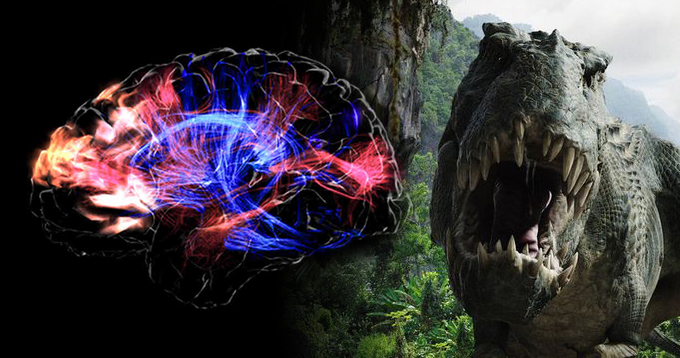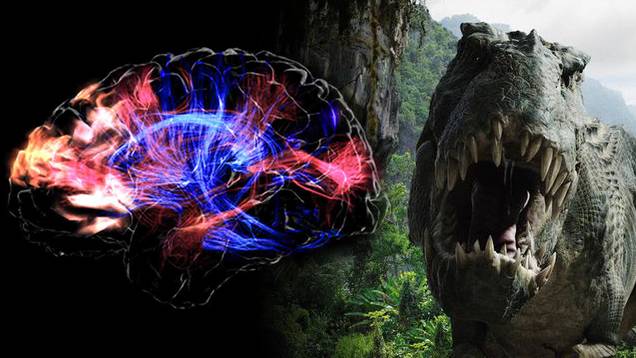Prejudice is a Form of Common Sense - Hard-Wired Into the Human Brain, Says ASU Study
Source: sciencedaily.com

Contrary to what most people believe, the tendency to be prejudiced is a form of common sense, hard-wired into the human brain through evolution as an adaptive response to protect our prehistoric ancestors from danger.
So suggests a new study published by Arizona State University researchers in the May issue of the "Journal of Personality and Social Psychology," which contends that, because human survival was based on group living, "outsiders" were viewed as -- and often were -- very real threats.
"By nature, people are group-living animals -- a strategy that enhances individual survival and leads to what we might call a ’tribal psychology’," says Steven Neuberg, ASU professor of social psychology, who authored the study with doctoral student Catherine Cottrell. "It was adaptive for our ancestors to be attuned to those outside the group who posed threats such as to physical security, health or economic resources, and to respond to these different kinds of threats in ways tailored to have a good chance of reducing them."
Unfortunately, says Neuberg, because evolved psychological tendencies are imperfectly attuned to the existence of dangers, people may react negatively to groups and their members even when they actually pose no realistic threat.
Neuberg and Cottrell had 235 European American students at ASU think about nine different groups: activist feminists, African Americans, Asian Americans, European Americans, fundamentalist Christians, gay men, Mexican Americans, Native Americans and nonfundamentalist Christians. The researchers then had the participants rate these groups on the threats they pose to American society (e.g., to physical safety, values, health, etc.) and report the emotions they felt toward these groups (e.g., fear, anger, disgust, pity, etc.).
Consistent with the researchers’ hypotheses, findings revealed that distinct prejudices exist toward different groups of people. Some groups elicited prejudices characterized largely by fear, others by disgust, others by anger, and so on. Moreover, the different "flavors" of prejudice were associated with different patterns of perceived threat.
Follow-up work further shows that these different prejudices motivate inclinations toward different kinds of discrimination, in ways apparently aimed at reducing the perceived threat.
"Groups seen as posing threats to physical safety elicit fear and self-protective actions, groups seen as choosing to take more than they give elicit anger and inclinations toward aggression, and groups seen as posing health threats elicit disgust and the desire to avoid close physical contact," says Cottrell.
"One important practical implication of this research is that we may need to create different interventions to reduce inappropriate prejudices against different groups," says Neuberg.
For example, if one is trying to decrease prejudices among new college students during freshman orientation, different strategies might be used for bringing different groups together.
"For instance, given that whites stereotypically perceive blacks as threats to physical safety, it would be inadvisable to suggest a game of outdoor night-time basketball, given that darkness heightens people’s fear. Sharing a plate of nachos might be a better choice," Cottrell says. "But if the aim is to reduce prejudice against gay men -- viewed to pose a health treat because of association with AIDS, and thereby eliciting physical disgust --sharing finger food might not be a good idea."
Neuberg and Cottrell are both adamant to point out that just because prejudices are a fundamental and natural part of what makes us human, that doesn’t mean that learning can’t take place and that responses can’t be dampened.
"People sometimes assume that because we say prejudice has evolved roots we are saying that specific prejudices can’t be changed. That’s simply not the case," Neuberg says. "What we think and feel and how we behave is typically the result of complex interactions between biological tendencies and learning experiences. Evolution may have prepared our minds to be prejudiced, but our environment influences the specific targets of those prejudices and how we act on them."
Source: sciencedaily.com
Comment
While pointing out that prejudice is a form of common sense, hard-wired into the human brain through evolution as an adaptive response to protect our prehistoric ancestors from danger is very sensible, this study then takes a sharp left, ending with a "solution" that is in line with the rest of the scientific social engineering studies done these days.
Problem #1: Why did the study have to involve 235 European American students and not any other race?
The article states: "Neuberg and Cottrell had 235 European American students at ASU think about nine different groups: activist feminists, African Americans, Asian Americans, European Americans, fundamentalist Christians, gay men, Mexican Americans, Native Americans and nonfundamentalist Christians."
This just includes European Americans and potentially (if these are among the 235) gay men, feminists, fundamentalist Christians and nonfundamentalist Christians. So no other race mentioned has been included in this study.
Problem #2: Look at the different groups they ask the European American students to focus on: feminists, African Americans, Asian Americans, gay men, Mexican Americans, Native Americans, fundamentalist Christians, and non-fundamentalist Christians.
Why not have a gay man focus on a heterosexual, or a Black person focus on a White person, or an atheist focus on a Christian, or a feminist on a non-feminist woman or a Mexican focus on an Indian or an Asian focus on a Black person? Nope! As we now know it’s only Europeans that can be racist and only Europeans can have prejudice against others races.
Problem #3: Neuberg says that, “One important practical implication of this research is that we may need to create different interventions to reduce inappropriate prejudices against different groups.”
So does this mean eventually skewed science will say that a White woman who is not attracted to a Black man is prejudiced and needs intervention? In what form will this intervention come? What prejudice is appropriate and who is to say? There is no end to where this could go.
Problem #4: “Neuberg and Cottrell are both adamant to point out that just because prejudices are a fundamental and natural part of what makes us human, that doesn’t mean that learning can’t take place and that responses can’t be dampened.”
So prejudice is a fundamental part of what makes us human, based on an adaptive response, passed down from our ancestors but now we’ve evolved to a point where prejudice isn’t necessary for survival and the time for that is over? Because someone beyond prejudice is going to come teach us what is right and wrong to feel. And how will these responses be “dampened?”
Problem #5: "People sometimes assume that because we say prejudice has evolved roots we are saying that specific prejudices can’t be changed. That’s simply not the case," Neuberg says. "What we think and feel and how we behave is typically the result of complex interactions between biological tendencies and learning experiences. Evolution may have prepared our minds to be prejudiced, but our environment influences the specific targets of those prejudices and how we act on them."
So which “specific” prejudices will they see fit to change? In the end, the elite would find it highly useful to remove our basic, hard-wired instinct that would enable us to determine and identify a threat ie; the global elite who seek total control and domination and the eradication of those who speak up against it.
This study is ultimately about how to control us more efficiently. Remember, they study you everyday. With millions of dollars at their disposal there isn’t anything they don’t want to know. They want to know everything about you.
They especially want to know how our hard-wired instincts, that have evolved over thousands of generations, can be removed so that we will comply and not recognize danger when we see it. This is about removing the innate biological and instinctual functions that could threaten the hegemony of the global elite.
If the drives that make you you can be shut off, then they will have effectively created a rootless and out of touch human, that has no capability of judging any given situation for themselves.
Not every situation is life threatening, but some are and you being capable of making judgements and pre-judgements (prejudices) in those situations is a positive function that has resulted in our survival, even if it did hurt the feelings of an invader trying to take your stuff or a predator trying to have you for lunch.






















